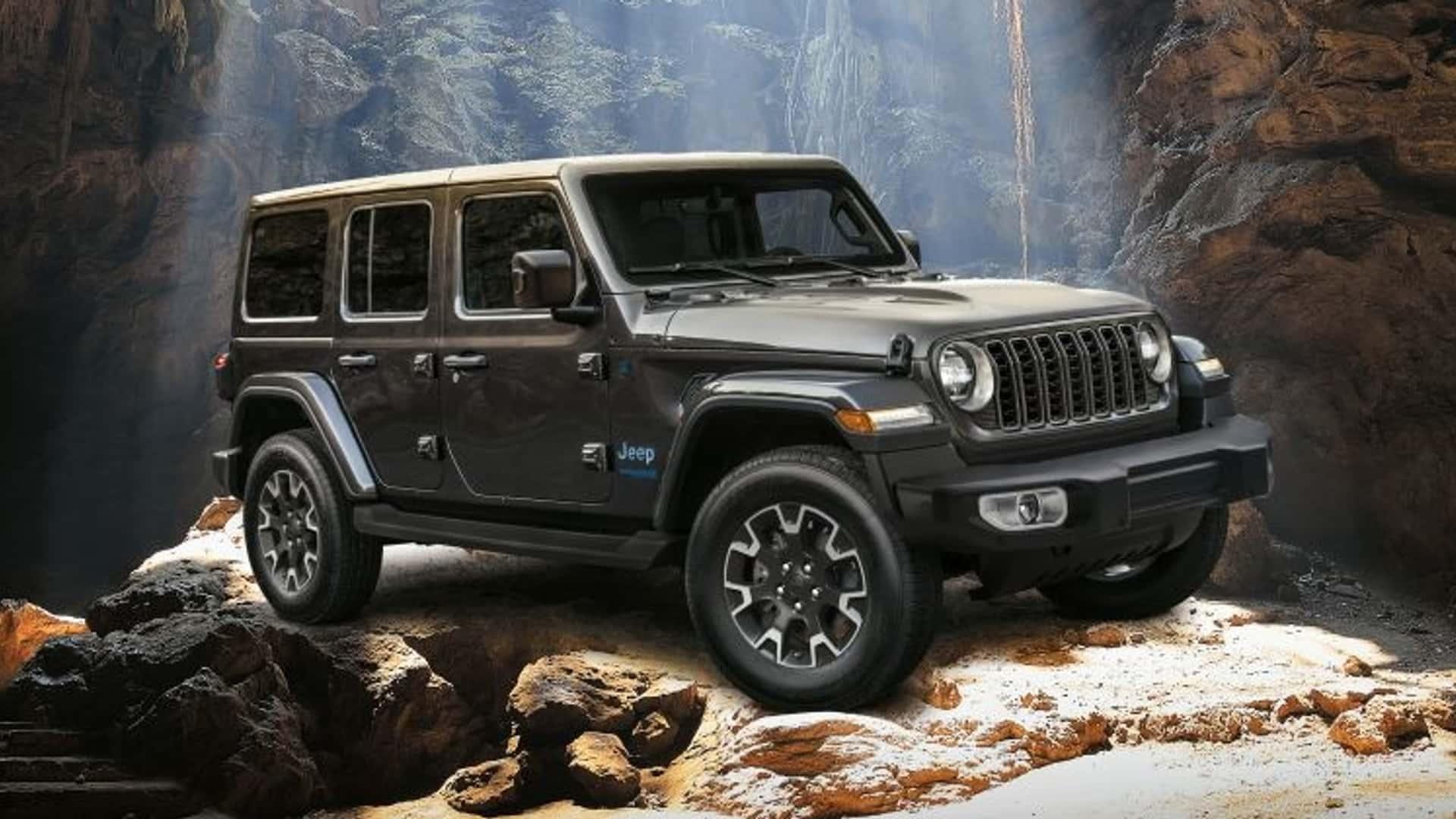How Long Do Jeep Wranglers Last?
In a world where trends come and go faster than ever, one iconic vehicle seems to stand the test of time: the Jeep Wrangler. With its rugged design and 4×4 capabilities, the Wrangler has captured the hearts of adventurers for generations. But just how long can this legendary vehicle keep conquering the off-road terrain? Join us as we delve into the question: How long do Jeep Wranglers last?
Table of Contents
- Overview of Jeep Wrangler longevity
- Factors influencing the lifespan of a Jeep Wrangler
- Maintenance tips to extend the lifespan of your Jeep Wrangler
- Common issues affecting the longevity of Jeep Wranglers
- Signs it may be time to say goodbye to your Jeep Wrangler
- Frequently Asked Questions
- The Way Forward

Overview of Jeep Wrangler longevity
Jeep Wranglers are known for their durability and longevity, making them a popular choice among off-road enthusiasts and adventure seekers. With proper maintenance and care, a Jeep Wrangler can last for many years, providing reliable performance on and off the road. The rugged construction and sturdy build of the Wrangler contribute to its ability to withstand tough terrain and challenging conditions.
One key factor that affects the longevity of a Jeep Wrangler is how well it is maintained. Regular oil changes, tire rotations, and fluid checks are essential to keeping the vehicle running smoothly and preventing premature wear and tear. Additionally, staying up-to-date on any necessary repairs or replacements can help extend the life of the Wrangler.
Another aspect to consider when discussing the longevity of Jeep Wranglers is the quality of materials used in their construction. From the body to the engine components, Jeep is known for using high-quality materials that are built to last. This commitment to durability and reliability is evident in the overall lifespan of the Wrangler, making it a solid investment for those looking for a vehicle that can stand the test of time.
Factors influencing the lifespan of a Jeep Wrangler
When it comes to the lifespan of a Jeep Wrangler, there are several key factors that can influence how long these rugged vehicles can last on the road. Whether you’re a proud owner of a Jeep Wrangler or considering purchasing one, it’s important to understand what can impact its longevity. Below are some of the main factors that can affect the lifespan of a Jeep Wrangler:
Maintenance:
- Regular maintenance and servicing can greatly extend the lifespan of a Jeep Wrangler.
- Changing the oil, checking fluid levels, and following the manufacturer’s recommended maintenance schedule are all crucial in keeping your Wrangler running smoothly.
- Proper care and attention to detail can help prevent major issues down the line and ensure your Jeep Wrangler lasts for years to come.
Driving Conditions:
- The way you drive and the conditions you drive in can also impact the lifespan of your Jeep Wrangler.
- Off-roading, towing heavy loads, or driving in extreme weather conditions can put additional strain on your vehicle.
- Being mindful of how you drive and the terrain you tackle can help preserve the durability of your Wrangler.
Maintenance tips to extend the lifespan of your Jeep Wrangler
Regular maintenance is key to extending the lifespan of your Jeep Wrangler. By following these simple tips, you can ensure that your vehicle stays on the road for many years to come:
-
Change the oil regularly: Make sure to follow the manufacturer’s recommendations for oil changes. This will help keep your engine running smoothly and prevent any premature wear and tear.
-
Check the tire pressure: Keeping your tires properly inflated not only improves fuel efficiency but also prevents unnecessary wear on the tires. Be sure to check the pressure regularly and adjust as needed.
-
Inspect the brakes: Brakes are a critical safety component of your vehicle. Regularly checking the brake pads, rotors, and calipers can help prevent costly repairs down the line. If you notice any squeaking or grinding noises, it’s time to have your brakes inspected by a professional.
To get the most out of your Jeep Wrangler, it’s important to stay on top of routine maintenance tasks. By taking the time to care for your vehicle properly, you can enjoy many more miles of off-road adventures.
Common issues affecting the longevity of Jeep Wranglers
One common issue that can affect the longevity of Jeep Wranglers is rust. Jeeps are known for their off-road capabilities, which means they are frequently exposed to moisture, mud, and other corrosive elements. Over time, this can lead to rust forming on the body of the vehicle, especially in areas like the undercarriage and around the wheel wells. To prevent rust from becoming a major issue, it’s important to regularly wash and wax your Jeep, as well as inspecting for any signs of rust and addressing them promptly.
Another factor that can impact the lifespan of Jeep Wranglers is off-road wear and tear. While Jeeps are built to handle rugged terrain, constant exposure to rough conditions can take a toll on various components of the vehicle. This includes the suspension system, drivetrain, and tires. To maximize the longevity of your Jeep, it’s crucial to perform regular maintenance and inspections, such as checking for worn-out suspension parts, replacing damaged tires, and ensuring that the differentials are properly lubricated.
Lastly, poor driving habits can also contribute to premature wear and tear on Jeep Wranglers. Factors like aggressive driving, improper shifting, and neglecting routine maintenance can all lead to accelerated deterioration of vital components. By driving responsibly, following the manufacturer’s recommended maintenance schedule, and addressing any issues promptly, you can help ensure that your Jeep Wrangler lasts for many years to come. Remember, taking care of your vehicle is essential in maintaining its longevity and preserving its value.
Signs it may be time to say goodbye to your Jeep Wrangler
Is your beloved Jeep Wrangler starting to show signs of wear and tear? Here are a few indicators that it may be time to consider saying goodbye to your trusted vehicle:
1. High Mileage: If your Jeep Wrangler has racked up a considerable number of miles, it may be reaching the end of its lifespan. Constant use can take a toll on the engine, transmission, and other vital components, leading to costly repairs down the road.
2. Persistent Mechanical Issues: Are you constantly dealing with breakdowns, strange noises, or warning lights? These ongoing mechanical problems could be a sign that your Jeep Wrangler is no longer reliable and may require more maintenance than it’s worth.
Frequently Asked Questions
Q: How long can you expect a Jeep Wrangler to last?
A: Jeep Wranglers are known for their durability and longevity on the road. With proper maintenance and care, a Jeep Wrangler can last for many years.
Q: What factors play a role in determining the lifespan of a Jeep Wrangler?
A: Factors such as regular maintenance, driving conditions, and how the vehicle is used all play a role in determining the lifespan of a Jeep Wrangler.
Q: What maintenance tasks are essential for prolonging the life of a Jeep Wrangler?
A: Regular oil changes, tire rotations, and fluid checks are essential maintenance tasks for keeping a Jeep Wrangler running smoothly for years to come.
Q: Are there any common issues that Jeep Wrangler owners should be aware of?
A: Some common issues with Jeep Wranglers include rust, electrical problems, and wear and tear on the suspension components. Keeping up with regular maintenance can help prevent these issues.
Q: Can a Jeep Wrangler last for over 200,000 miles?
A: Yes, many Jeep Wranglers have been known to last well over 200,000 miles with proper care and maintenance. Some even reach 300,000 miles or more!
Q: Is it worth investing in an older Jeep Wrangler with high mileage?
A: It can be worth it to invest in an older Jeep Wrangler with high mileage if it has been well taken care of. However, it’s important to have a mechanic inspect the vehicle before purchasing to ensure it is in good condition.
The Way Forward
the longevity of Jeep Wranglers can vary depending on various factors such as maintenance, driving habits, and off-road usage. However, with proper care and upkeep, these rugged vehicles have the potential to last for many years and countless adventures on and off the road. Whether you’re a die-hard Jeep enthusiast or simply considering a Wrangler for your next vehicle, rest assured that these iconic vehicles have a reputation for resilience and longevity that stands the test of time. So go ahead, hit the trails, embrace the mud, and enjoy the journey with your trusty Jeep Wrangler by your side.
